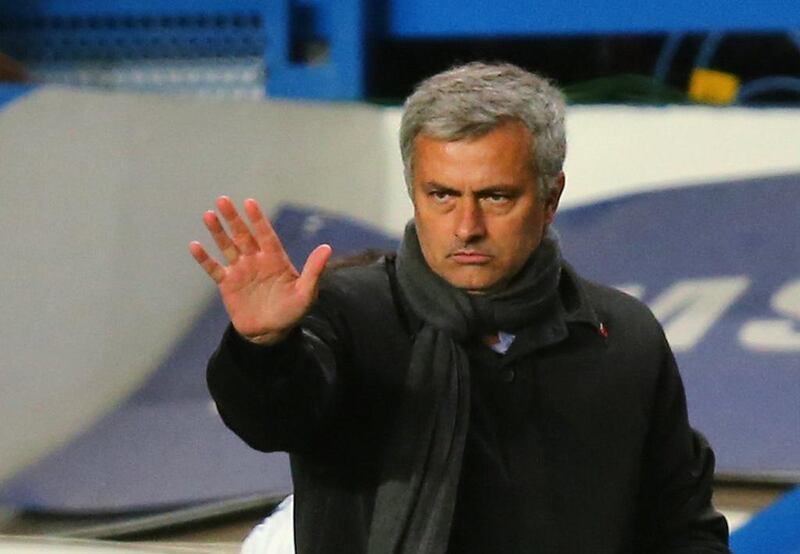“Second,” Jose Mourinho once sniped, “is the first loser.” The target of that particularly pointed comment was Manuel Pellegrini.
The manager the Portuguese replaced at Real Madrid had won a club record 96 points in a season, but not the title. For Mourinho, the winners’ winner, it made him a loser.
And so, by Mourinho’s definition, Pellegrini was the first loser again on Sunday. Manchester City contributed much at Stamford Bridge and departed with nothing. Second, if not always second-best, City now trail Chelsea by four points. Mourinho said City have the Premier League’s best team. While he did not state it himself, the Londoners may have the outstanding manager.
When Fernando Torres scored the 90th-minute winner, Mourinho’s celebrations took him into the crowd. Pellegrini, wearing a hangdog expression, was left on the touchline. It was a minute to reaffirm the image of Mourinho as a champion; only Pep Guardiola has really provided an alternative argument.
Pellegrini is irritated by the perception of him, which rather ignores his years winning trophies in South America, as a stranger to silverware. With his comments when they managed Malaga and Madrid, respectively, Mourinho has helped create that. As Claudio Ranieri, Roberto Mancini and Rafa Benitez can testify, Mourinho has a habit of throwing hand grenades at his predecessors and successors at his various clubs. It is part of his managerial style. He likes to leave a trail of destruction along his path to glory.
If the damage done on Sunday was to Joe Hart’s reputation and confidence, Chelsea’s fortunate winner nonetheless continued a theme. Mourinho can be the game-changer. Three points have turned into nine in Chelsea’s October league matches after his interventions. His contribution to the third triumph was the smallest – the replacement Willian played the long ball that Matija Nastasic and Hart failed to deal with, allowing Torres to score – yet it helped cement his standing as a master of substitutions.
Willian and Eden Hazard came off the bench to score at Norwich, just as Oscar did against Cardiff. Both previous matches featured mid-game switches to a back three as Mourinho overloaded with attackers in his search for a breakthrough. This time, he was more restrained, retaining structure and system, but changing personnel.
The catalytic impact extends to Chelsea’s match-winner. The transformation in Torres owes much to Mourinho; he seems to have achieved the impossible in adding a yard of pace to a player who had appeared in terminal decline. If Torres will never recover the searing speed he demonstrated at Liverpool, he looks a threat again. He is not as potent as Wayne Rooney, the striker Mourinho coveted in the summer, but the notion of Torres deciding one of the season’s defining games would have been improbable until his revival.
Whatever Mourinho’s effect on his own players, meanwhile, he has a capacity to unsettle opposing managers. His influence on the more sedate Pellegrini came on the tactics board, not the teamsheet. The Chilean had started with two forwards in every game until he arrived at Stamford Bridge, where he sacrificed a striker and asked Javi Garcia to anchor the midfield.
A former manager in Manchester, Sir Alex Ferguson, had devoted much of his autobiography to emphasising the importance of control. A current one, Pellegrini, lacks his dictatorial bent but aimed to control the midfield. In many respects, he succeeded, too: City had more possession and passed more neatly. It brought them more attempts at goal. They edged every statistic except the one that matters most: the scoreline.
But everything else is of secondary significance. As Bill Shankly once said: “If you are second, you are nothing.”
And Mourinho has rarely been the nothing man.
sports@thenational.ae






